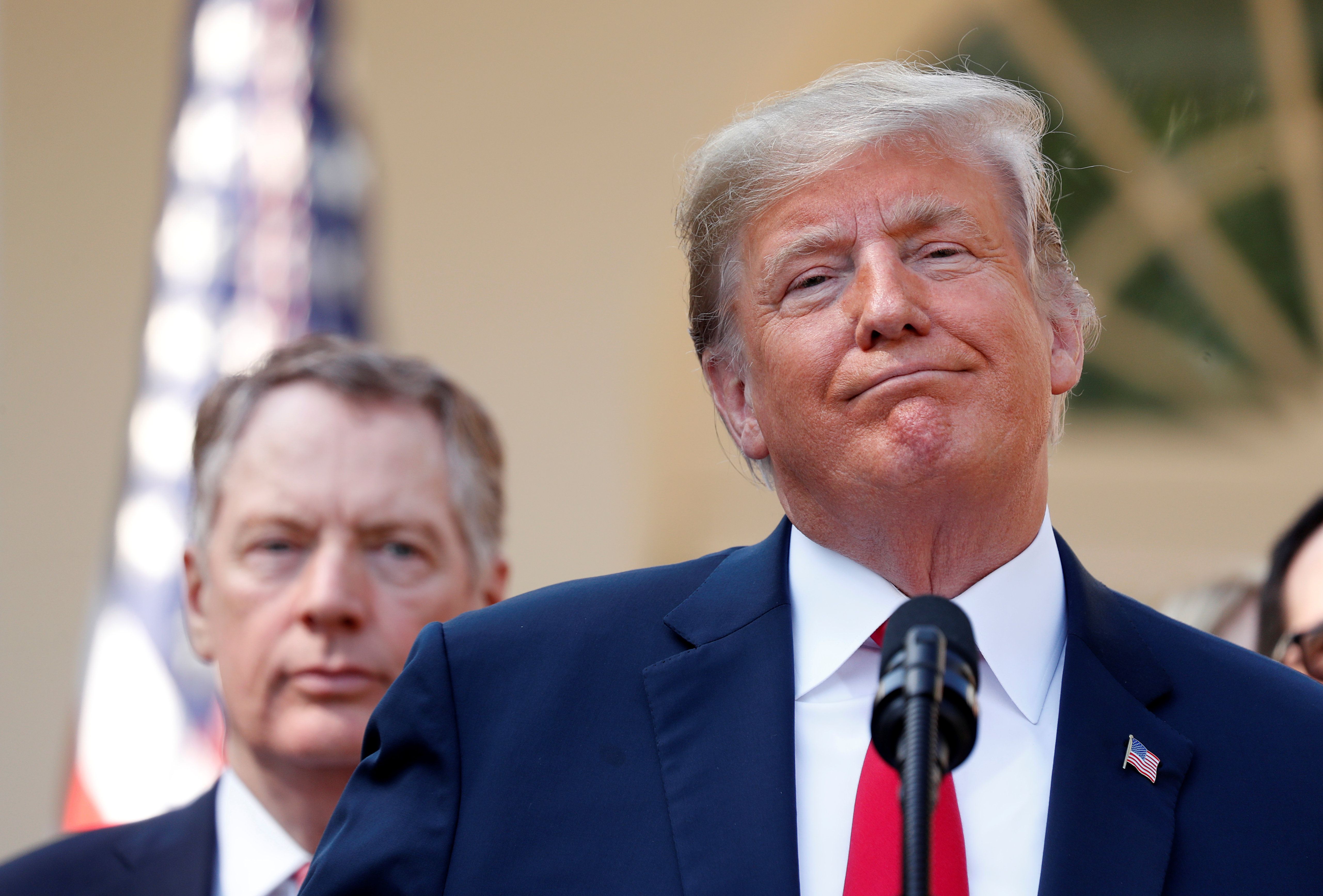The US and China may be on the verge of resolving – or at least cooling – a heavyweight trade fight that's already seen them slap tariffs on $360 billion worth of each other's goods. If all goes according to plan, a deal will be in place ahead of a summit later this month between President Trump and Chinese President Xi Jinping.
But that won't spell the end of the Trump administration's aggressive bid to remake the global trading order. Emboldened by their apparent successes in renegotiating NAFTA as well as the China trade relationship, Mr. Trump and his hardline trade czar Robert Lighthizer are now going to train their sights on a whole slew of other countries where they think they can win terms more favorable to US industry:
Japan: The US announced this week an investigation into Japanese titanium exports on national security grounds. The Trump administration wants to cajole Japan into accepting quotas on its auto exports and lowering its import tariffs on US beef and agricultural goods. But with upcoming local and parliamentary elections, the Japanese government will be reluctant to offer quick concessions. That means the US could be heading for long and acrimonious negotiations with its closest Asian ally.
European Union: President Trump wants the EU to remove its massive industrial and agricultural subsidies, and has threatened import tariffs on EU cars if he doesn't get his way. European politicians are loathe to scrap support to hugely influential voting blocs, but Mr. Trump can inflict real pain on EU automakers, who are the largest exporters of vehicles to the US. In July of last year, the US and EU agreed to a temporary trade truce while Trump focused on China, but with a Beijing deal in the bag, the US president will be spoiling for a fresh fight. Trump must make a final decision on auto tariffs before May 17.
Emerging economies: The US isn't just taking aim at rich countries. This week the White House announced it would end preferential treatment for India and Turkey under a decades-old trade regime intended to promote growth and prosperity in poorer economies.
The Trump administration's beef is that India hasn't opened up its industries to US firms and that Turkey is wealthy enough to no longer be coddled with special treatment. Note that India and Turkey are just two of 121 countries currently given such benefits, so Trump and Lighthizer may soon go after other targets.
The bottom line: As the dust begins to settle between the US and China, the Trump administration's appetite for trade fights is as strong as ever.
